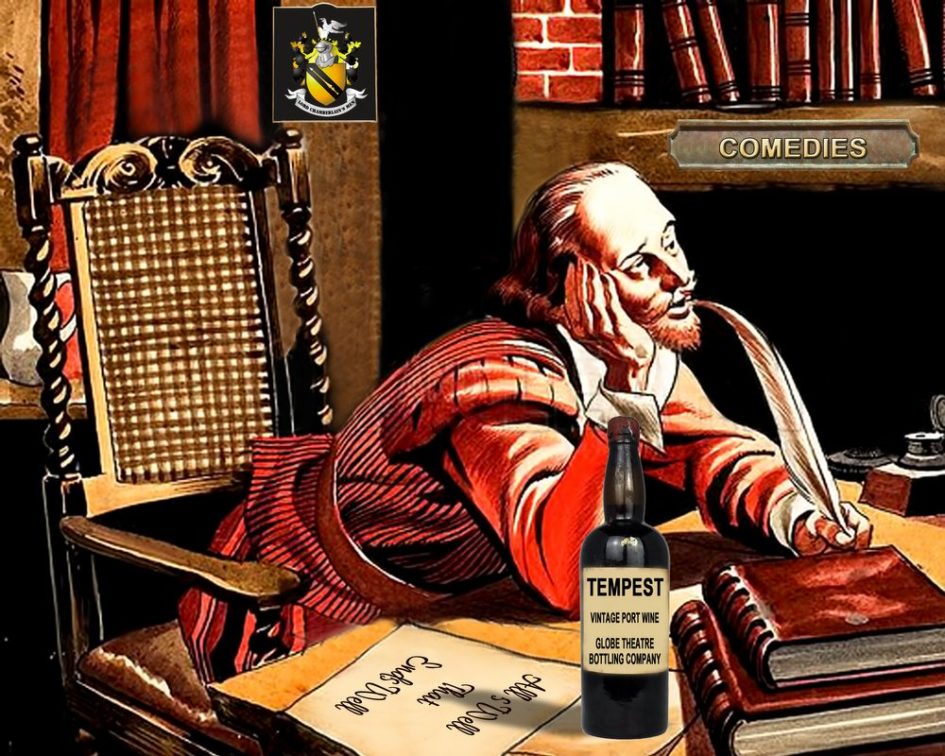April is Shakespeare month. The Bard was born, and also died, on April 23rd… but not the same year, I think.
But just to be sure, I googled him. Between his birth in 1564 and death in 1616, Shakespeare apparently plotted many murders, killed off characters, drove young people to suicide, and encouraged cross dressing. I know what you are thinking, that’s what I thought too. Shakespeare must have been a politician.
But no. He wrote plays and stuff. And he was no ordinary playwright. Shakespeare’s writings have caused a lot of misery and suffering over the last 400 years.
Even today frightened school children wake up from scary midsummer nights’ dreams about confusing plays and their confused characters. Talented stage actors throw tempest-tantrums when they forget his delightful dialogues and laudable lines. Depressed English professors wonder why they wrote long papers on Shakespearean tragedies when they could have written witty Hollywood scripts.
Shakespeare’s 457th birthday will be celebrated during April 2021, all over the world. What exactly did Shakespeare do to gain such popularity? Why should underprivileged literature-lovers in third world nations eat, drink and be as merry as the wives of Windsor on his birthday?
Well, apparently Shakespeare was well known for his philanthropic deeds. For instance, he generously donated more than 1,700 common words to the English language. On days he was unable to coin new words, he would modify existing ones by changing nouns into verbs, verbs into adjectives, fixing prefixes and suffixes, and so on. If you have ever been ‘Accused’ or ‘Aroused’, been influenced by cheap ‘Advertising’ or expensive ‘Addiction’, please note that these are just a few of the ‘A’ words coined by Shakespeare. And imagine what emotions he could stir up with the rest of the alphabets. Blushing, Courtship, Excitement, Fashionable, Gossip, Invulnerable, Laughable, Majestic, Obscene, Premeditated, Rant, Swagger, Tranquil, Undress… how many times have we gone from Accused to Undress, without a thankful thought thrown at that thoughtful wordsmith?
And Shakespeare’s generosity did not stop with donating words alone. He invented dozens of clichés which we use today. If you do not understand something and vexedly say, “It’s Greek to me”, you are quoting Shakespeare (Casca to Cassius in Julius Caesar). Why he came up with such a line remains one of several Shakespearean mysteries. Did he really not know Greek, or was he pretending not to… just to annoy the Greeks? We casually use colourful expressions today that were Shakespeare’s gifts to the English language – vanish into thin air, tongue-tied, tower of strength, hoodwinked, fair play, too much of a good thing, live in a fool’s paradise.
And so as not to waste all these witty words and pretty phrases he had invented, in his spare time Shakespeare wrote 38 plays, 154 sonnets and other assorted verses. His plays range from light comedies to dark tragedies, depending on the stage lighting budget of local theaters. And his characters are so real that they probably remind you of nearby neighbors or distant relatives.
Could there be talk of Love, without an honourable mention of Romeo and Juliet? Families that hate each other but their children fall into forbidden love – an essential slice of everyday, everywhere life. Romeo and Juliet show us the tragic side effects of love, like depression and suicidal tendencies.
So if you fall in love, does that mean you will require the services of a good psychiatrist? Not if you are a strong character like bright and beautiful Portia. All poor Shylock wanted was a pound of flesh instead of money. Now this sounds fair, even advantageous, as it might be a quick way to lose weight. But Portia, with her ability to read between the lines, noticed that the agreement said ‘…an equal pound of your fair flesh, to be cut off and taken in what part of your body pleaseth me’. Since Portia was unsure which part of Antonio’s body would pleaseth Shylock, she invoked an old Venetian law, the ‘own flesh and blood’ rule, which had a tricky bloody caveat. According to this, you could own a pound of flesh… as long as blood drippeth not into the clean canals of Venice. Thus Portia’s love helped her save the life of the love of her life. So what Shakespeare is saying here is – to outwit clever moneylenders, all you need is love.
But for those who don’t believe in love, you could always read Hamlet. We often hear about nice guys who murder their relatives in a fit of rage. That’s what happened with almost-harmless Hamlet. He was happy to just walk around with his father’s skull muttering “To be or not to be”. But when he learns about his uncle’s treachery he wants to break a few skulls, especially his uncle’s.
From the cynical wisdom of Jacques and the dark villainy of Macbeth to the blind jealousy of Othello, Shakespeare made the strongest and basest emotions burst out of his characters – much like an overweight actor bursting out of his tight costume when attempting to climb up Juliet’s balcony.
In addition to the pleasure of watching fat actors having mishaps onstage, Shakespeare was also popular because his themes were universal, like life, love, politics and murder. Now be honest. Wouldn’t you pay good money to see a bunch of toga clad Roman senators stabbing their bossy leader in parliament? What a dramatic scene that would be, with the combined effect of politics, power, jealously, betrayal and March madness in action.
That’s why while most writers fade away into footnotes over the years, the Bard continues to be required reading in dismal classrooms in distant corners of the globe. In a town in Tamil Nadu, I saw a large sign with bold letters that read ‘Don’t Fear Shakespeare’. This was obviously an attempt by a high school English teacher to scare students into joining his tuition center. But it does suggest that a playwright’s pen is mightier than bloody swords. Over the centuries, merciless marauders like Genghis Khan and Attila the Hun have become the subject of silly jokes. But Shakespeare reaches out across countries, cultures and centuries to shake up impressionable imaginations and put the fear of literature into young minds. Long may we be spellbound by your love epics, your murder plots and your tales of woe and war.







 Users Today : 0
Users Today : 0
April 1, 2021 at 6:06 pm
Enjoyed the ode to Shakespear , Ajoy! Also love the blog name!
April 2, 2021 at 3:55 am
O Learned Bard of Lavelle Road, thou hast successfully entertained and educated me. Verily I thank you. I also do humbly suggest that ye get thee with thine purse to a bookstore and buy ye the witty Bill Bryson’s Shakespeare – The world a stage. Thou canst thank me later.
April 16, 2021 at 1:52 pm
Enjoyed the read.well written ajoy
April 23, 2021 at 3:52 pm
Thank you, Joshi, for verily thanking me.
But when you say ‘Bard’, is the ‘r’ functionally silent?
April 6, 2021 at 11:32 am
Entertaining indeed! Thoroughly enjoyed reading this.